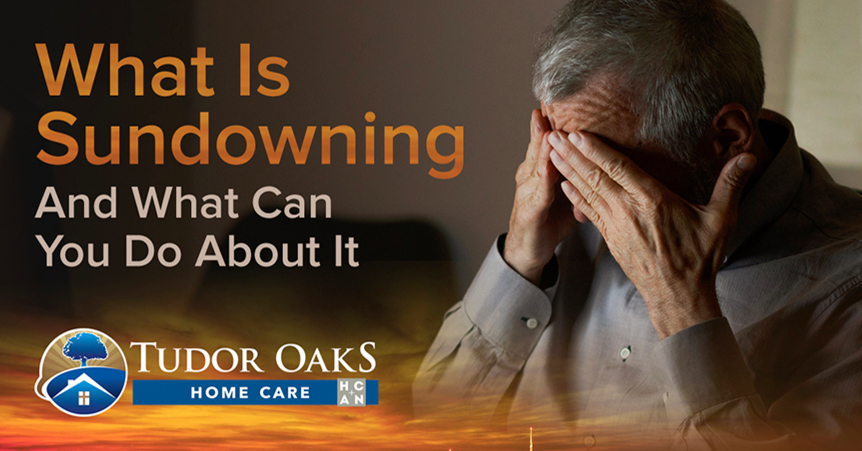If you’re caring for a loved with with Alzheimer’s disease or another form of dementia, you may have noticed an increase in confusion, anxiety or even aggression at the end of the day. This type of late day confusion is often referred to as sundowning.
“Sundowning is not a disease itself – it’s a group of symptoms that is marked by signs of anxiety, sadness, confusion, irritation and pacing or wandering,” said Linda Lundeen, Care Advocate Success Trainer at Trail Ridge Home Care’s partner, the HomeCare Advocacy Network (HCAN). “It’s called sundowning, because behavior change typically starts around dinner time and often continues into the night.”
Although the exact cause of sundowning is unknown, doctors believe it’s triggered by a combination of things, including:
- Lack of sleep, fatigue or mental exhaustion
- Caffeine and alcohol use close to bedtime
- Faded or low light that increases shadows, causing confusion and fear
- Upset in their circadian rhythms – confusing day and night
- Underlying health issues, such as an infection, discomfort or pain
- Dehydration or hunger
- Stress, depression or boredom
“Sundowning behaviors can be very upsetting, but it is common in individuals with Alzheimer’s or other cognitive impairments,” Lundeen said. “The good news – there are things you can do to reduce the severity and frequency of sundowning events – making life a little less challenging for everyone.”
Lundeen suggests:
- Scheduling activities such as doctor’s appointments, trips and bathing in the morning or early afternoon
- Encouraging a regular routine of waking up, meals and going to bed
- When possible, including walks or time outside in the sunlight
- Making notes about what happens before sundowning events so you can identify possible triggers
- Reducing stimulation during the evening hours – television, computers or smart phones, loud music, etc.
- Offering a larger meal at lunch and keep the evening meal lighter
- Keeping the home well lit in the evening
- Encouraging activities that are soothing, such as listening to calming music, looking at photo albums or watching a favorite show
- Taking a walk
- Asking his/her physician about the best times of day to take medications
- Reducing or avoiding alcohol, caffeine and nicotine
“Sundowning is one of the topics we cover in HCAN’s Family and Friends Dementia Education class – a high-touch training designed to help family members and friends understand what to expect with dementia,”Lundeen said. “This class is free and open to everyone. While we can’t solve all of their challenges, people who have attended the training said they found it very eye-opening and helpful.”
For more information about the Family and Friends Dementia Education class or professional caregiving services designed specifically for clients with Alzheimer’s or another form of dementia, visit hcanthrive.com or call 402-965-0737.
